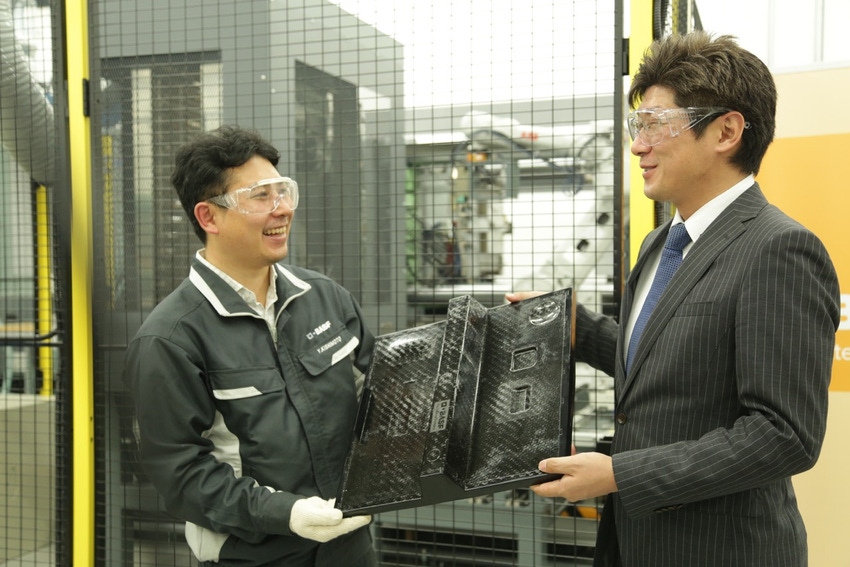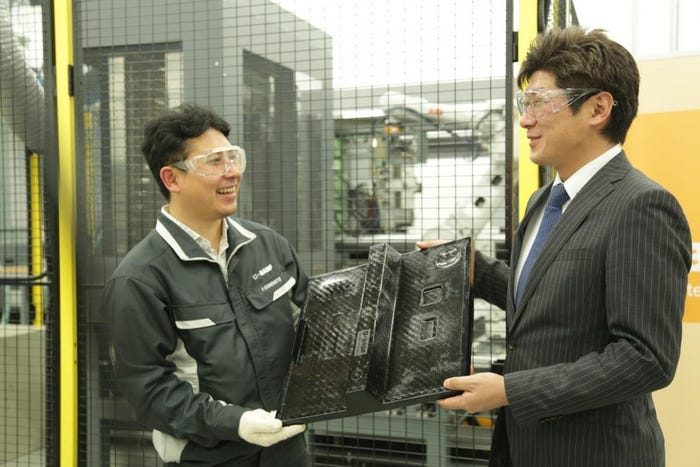While Japanese automakers have extended their manufacturing reach globally, the fact remains that the vast majority of materials are still specified back home in Japan. This is especially the case when the technology is disruptive, such as replacing metal with plastic composites.Recognizing the importance of establishing a presence in Japan to gain better access to these OEMs, BASF established its Asia Composite Center in Yokohama. The site also serves OEMs in Korea and China and has a specific focus on the auto sector.
August 26, 2015

While Japanese automakers have extended their manufacturing reach globally, the fact remains that the vast majority of materials are still specified back home in Japan. This is especially the case when the technology is disruptive, such as replacing metal with plastic composites.
Recognizing the importance of establishing a presence in Japan to gain better access to these OEMs, BASF established its Asia Composite Center in Yokohama. The site also serves OEMs in Korea and China and has a specific focus on the auto sector.
 Speaking to PlasticsToday from his Singapore office, Martin Baumert, Head of New Material Development, Performance Materials, Asia Pacific, said that Japanese OEMs have a lot of fundamental knowledge and expertise when it comes to materials development. "We can learn a lot from them but we must have direct contact."
Speaking to PlasticsToday from his Singapore office, Martin Baumert, Head of New Material Development, Performance Materials, Asia Pacific, said that Japanese OEMs have a lot of fundamental knowledge and expertise when it comes to materials development. "We can learn a lot from them but we must have direct contact."
Initially, BASF will focus on smaller parts for conversion to engineering plastics composites. A step-by-step approach is more suited to the conservative nature of Japanese OEMs. "While there is a strong trend towards light weighting to improve CO2 emissions," Baumert says, "Our main challenge will be to prove that we can break even [in cost terms]." This will be especially the case in the longer run as larger parts come into focus given sheet metal is priced very competitively priced in Japan where major steel makers have close relationship with automakers.
One approach that BASF is considering is highlighting and overall breakeven scenario to Japanese automakers. "If the car is lighter you can use smaller brakes and a lighter steering system but we have to find the right people to communicate this to."
The Asia Composite Center, which houses manufacturing cell for part processing, including a versatile mold frame, machine, IR heater and robot, is able to demonstrate mass production of composite parts for automotive applications. As such, key customers in Asia can benefit from accelerated development speed, molding trials of prototypes and validated solutions on a semi-industrial scale. The new center opened in 2015.
"Over the past 20 years, BASF has contributed significantly to metal replacement in automotive applications, using short fiber reinforced polyamide. Last year, we broadened our product portfolio with UltracomTM to enable further metal replacement. The opening of the Asia Composite Center allows us to help customers achieve early optimization in the product development process," said Andy Postlethwaite, Senior Vice President, Performance Materials Asia Pacific, BASF.
The robust processing technologies in the Asia Composite Center - located at BASF's Yokohama Innovation Center in Japan - is part of the unique service system offered under the brand name Ultracom, BASF's system of continuous fiber reinforced materials and relevant services for the reinforcement of injection-molded structures. It is based on three elements: continuous-fiber reinforced semi-finished products, adapted overmolding compounds and the complementing engineering support. With the launch of the Asia Composite Center, BASF is reportedly the first raw material supplier in Asia to provide a service system for continuous fiber reinforced components that includes molding trials of prototypes.
Ultracom is said to offer short cycle times due to the thermoplastic manufacturing approach. This can be accomplished for instance, by combining draping and over-molding in one step using continuous fiber-reinforced thermoplastic composites with optimized part design. Additionally, with the Asia Composite Center, Ultracom is ready for production on a semi-industrial scale in Asia. Hence this demonstrates reliable manufacturing capabilities.
"The Asia Composite Center, coupled with our broad portfolio of high performance plastics, successful customer collaborations, strong pipeline of projects and technical capabilities, allows us to better serve the growing automotive market in Asia Pacific and enable our customers to capture growth in the region. Our researchers are also working on adapting the technology to other industries such as consumer electronics," added Postlethwaite.
You May Also Like


